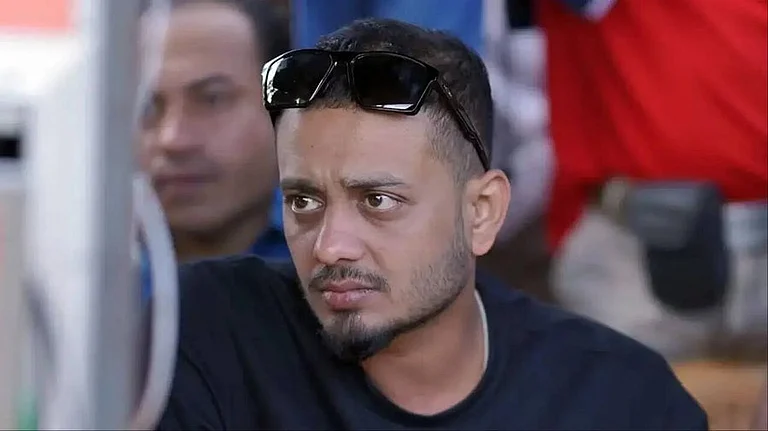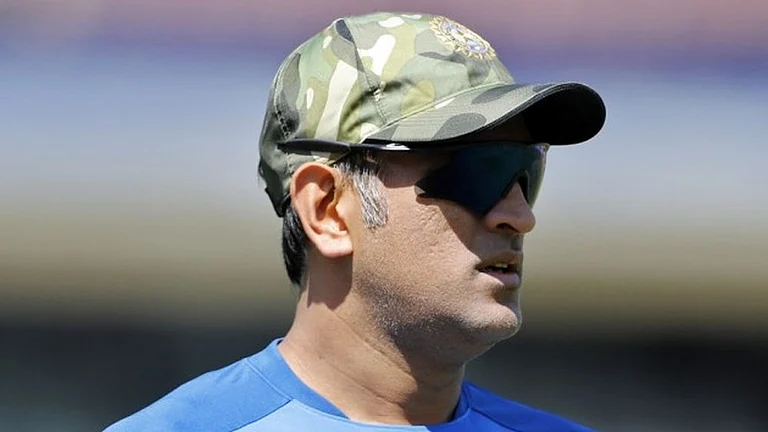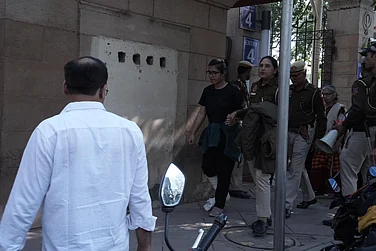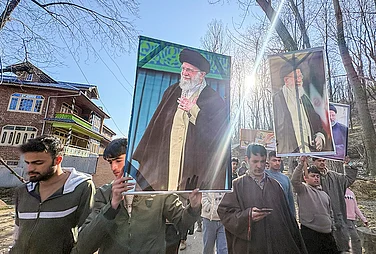My colleague Samarveer died by suicide. He was only 33. He was an ad hoc faculty at Hindu College.
I was an ad hoc teacher at Delhi University back in 2004. During my tenure, I went through two pregnancies. Not only did I not have any maternity leave, I joined back college within two days of delivery, while my stitches were still raw. I was scared that my position would be given away to someone else.
Ad hoc teachers have no job security. They can be let go on a 24-hour notice. They have no medical benefits, no medical leaves, no pay hikes and no rights. Yet teachers work in ad hoc positions in the hope that they will be regularised someday, that they will get to be permanent faculties.
Over the years, in this university, I have witnessed ad hoc teachers report to duty during sickness, come to college even on days they lost a family member, directly come from the crematorium or from the hospital. I have witnessed the complete dehumanisation of this community by the system.
I have witnessed ad hoc teachers put everything on hold— marriage, starting a family, a PhD, and paper presentations. The immense workload they shoulder at the university, with no leave for even exigencies, leaves them with very little time to pursue their career goals. The uncertainty makes them wary of new responsibilities and commitments in their personal lives. However, there is hope in their hearts—a hope of getting a regular university job.
After four years of working ad hoc at my institution, I was regularised through the interview process and on the recommendation of my department and college principal. If a candidate has been retained for several years, it is because the department and the college administration is satisfied with the ad hoc faculty’s teaching skills, with their administrative work and the interpersonal skills that the ad hoc teacher has demonstrated over the years of service. It is understood that he or she is on an almost definite tenure track and that he or she will be absorbed.
Samarveer was teaching in the Department of Philosophy for six years. He was a favorite among students. He loved teaching, he loved writing. He spoke passionately of Camus’ and Kafka’s works. One of his colleagues described him as quiet and introverted “till you really got to know him, and then you saw him for what he was—the next Jean-Paul Sartre of India”.
There were four vacant positions in his department, and he was the only working ad hoc teacher. It is but natural that hope grew unbridled in his heart. He had earned that hope with his years of dedicated service to the institution and to the department. He had an impeccable record. He had heard of the ongoing displacements of ad hoc teachers in the University colleges, so fear did grip his heart sometimes, but he set aside his fears and remained hopeful. He discussed with his friends, his fears as he did his hopes and aspirations. And then, on February 16, the interview was held and he was told that he was being let go and that his position had gone to someone else. He continued as an ad hoc teacher for a few months and then again, in April, he was informed that he could not continue even in the ad hoc capacity.
He was distraught. He told his sister: “Am I that incapable that they don’t even think of me worthy of continuing in an ad hoc position”. He told his friend: “I will not go through the humiliation of working as a guest lecturer”.
Incidentally, Delhi University, at the beginning of this academic year, arbitrarily stopped ad hoc appointments against any vacant position. Even if a full hand is required, only guest faculties can be hired at half the salary, even though the rules say that a full timetable has to be filled with ad hoc positions and guests are to be hired only against requirements for less than a full hand. Guest teachers have even lesser rights—no voice and no voting rights in the University elections.
Samarveer bemoaned to a friend a few days before he was gone: “How can they be so cruel? How can they just throw out someone who has been there for years? Do they know the struggles of a person who loses their livelihood? Do they even care? I had to give up my flat in Mukherjee Nagar and move in with my cousin. Do they know what it does to their psyche? I have not slept in days. Do they know what it does to their kin? My mother’s health has deteriorated. She has lost her eyesight. How can they be this insensitive? How?”
Like the Urdu poet Pash had said: “Sabse khatarnaak hota hain hamare sapno ka mar jaana” (The death of our dreams, is the most dangerous of all).
Samarveer’s dreams were killed by the system. His hopes were strangled in a chokehold, like the hopes of thousands of others in this University. A professor, a brilliant mind was left thinking of himself as worthless. They might be the greatest mind, the most sensitive human being, the most intelligent but they lose faith, and their dreams die.
His friend told him the day before the fateful day: “Samar, you have to do bigger things. You are meant for greater, far-reaching academic work”. But his dreams had died.
Samarveer, a gentle soul, a sensitive thinking mind, a great philosopher, had been pushed over the edge and hurled into a dark vortex of hopelessness and despair.
I was there, the day after, for the condolence meeting that had been organised by students. I arrived at the Hindu College, expecting to see a sombre atmosphere, a pall of gloom at the institution, which had just lost a brilliant mind, a young teacher, to suicide.
Instead, the college was brimming over with festivities. The annual festival “Mecca” was in full swing. Tacky paper decorations adorned the college and after much asking, I could finally find the site of the condolence meeting, in a small corner, surrounded by festivities. The students’ expressions in that corner were in stark contrast to the all-pervasive, predominant, joyous mood all around. Some students were holding back tears while some spoke with anger. Someone observed that in any civilised society, this festival would have been cancelled and the college would have been in mourning. The college principal, later in the day, was seen in a viral video, dancing at the celebrity show of “Mecca”. I remember looking at the video and feeling ashamed on her behalf. I remember feeling guilty and apologising to Samarveer on her behalf.
Why are the displacements happening? Are the candidates who are being absorbed of such high quality that the interview panel has no choice but to rank those applications higher? Who are the people who are being absorbed? Had Samarveer been rejected because he had not completed his Ph.D. as the Hindu principal had asserted when she faced media? It turns out—No. Many of the candidates who have been absorbed as permanent faculties do not have Ph.Ds, which immediately points us to the misleading statements made by the principal and the administration.
The current displacement rate is at 85 per cent. For every 10 ad hoc faculties working for years, more than eight are displaced. Very highly-qualified ad hoc teachers, with decades of experience, are more often than not being replaced by candidates from lower-ranking universities with candidates who have either lesser years of teaching experience or sometimes no experience at all. They are often being replaced by candidates who do not even have an M.Phil or a Ph.D.
However, it is observed that these candidates, who are getting the jobs, usually have something, which the serving ad hoc faculty who is being replaced doesn’t have— connections and closeness to the ruling dispensation, to Rashtriya Swayamsevak Sangh (RSS) and other allied organisations, and sometimes closeness/affiliation/kinship with the Delhi University Teachers Association (DUTA) leadership which belongs to the National Democratic Teachers Front (NDTF), the teachers’ front associated with the Bharatiya Janata Party (BJP).
Scores of ad hoc colleagues have complained that the interviews are a farce, a sham. Candidates facing interviews have been asked one question, sometimes completely irrelevant to their discipline, and then have been asked to go. Candidates have been humiliated by members of the interview panel for no apparent reason and the candidates have come back from the interview with the distinct feeling that the outcome of the interviews is pre-determined.
Sometimes the panel is not complete and there are also serious allegations that candidates have been interviewed by a voice coming out of a speaker placed on the table, inside the interview room. There have also been shocking allegations of rampant bribery and corruption surrounding the interview and placement processes.
Never has politically motivated nepotism and corruption been witnessed at this level of brazenness and nonchalance, so much so, that even after we have lost our colleague at the altar of nepotism, apathy and corruption, the displacements go on unhindered, shamelessly. As I write this, news comes in, that an ad hoc teacher working at the SNGD Khalsa College for the past 21 years, has been displaced. She had lost her husband just 15 days back.
What is it that a five-minute interview revealed about the faculty member that 21 years of dedicated service to the institution could not reveal? What is it that strangers on an interview panel, some of them not even as qualified as the ad hoc teacher who was facing the interview, can tell, which her colleagues, the head of her department, who have worked with her for 21 years, couldn’t tell?
The department in-charges are being sidelined, their opinion overruled by interview panels consisting of “experts” mostly brought in from other Universities and not DU or Jawaharlal Nehru University (JNU). For some inexplicable reason, external “experts” are heading panels, unlike previous times of regularisation when interview panels were headed by experts from our own University.
What we are witnessing here is the destruction of our great University, the killing of dreams, the snatching away of livelihoods and the destruction of careers, the complete annihilation of good quality education and a mockery of the teaching-learning process and students’ futures. What is happening here is unpardonable and criminal at so many different levels. And most of all, it is inhuman and brutal and telling of the ominous times ahead and our own helplessness, best described by Samarveer’s own words penned down as a poem:
“Have you ever witnessed
The surging horror
Of a distant Tsunami approaching
From the middle of the roaring ocean
Still, listless, helpless
You stood
contemplating the deep flimsiness
of human life”
-Samarveer Singh
He died by suicide. He was 33. Only 33.
(Monami Sinha is an Associate Professor of Economics at Kamala Nehru College and an Academic Council member, Delhi University. Views expressed in the article are personal.)





















